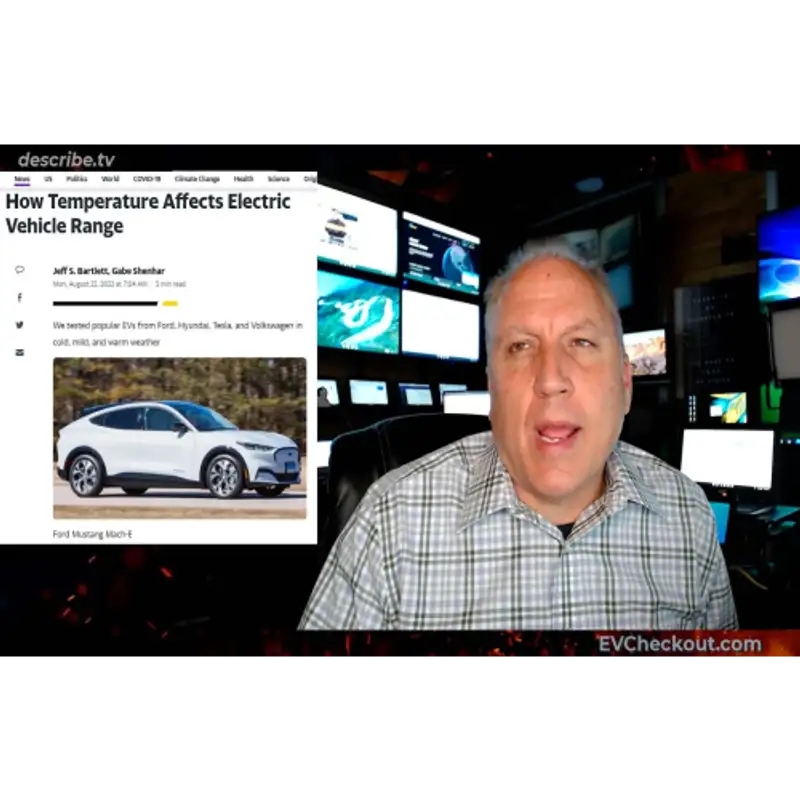How Temperature Affects EV Battery Range: What You Need to Know
Download MP3So, have you seen in the news? There's a lot going on with electric vehicles. One of the first things is this new Inflation Reduction Act, which has put some new incentives and new rules for incentives into electric vehicle tax credits. This article in the Wall Street Journal talks about some of that, though not all of the credits and calculations have been analyzed yet. You can keep an eye on our website, evcheckout.com, to see what those requirements are.
The most important thing that's different is there's income limits, meaning that if the applicant makes over a certain threshold, they're not eligible for tax credits. Basically, they don't want rich people to get tax credits on electric vehicles. There are also vehicle price caps for the same reason—they're not going to give EV credits for very high-end vehicles. And there are other variations that affect the cost of an electric vehicle. One of them has to do with the manufacturing location. Certain imported electric vehicles are not eligible, only domestic vehicles like Ford and others.
We’ll have a list on our website of all the calculations and all the forms you need, but also keep in mind that you might want to act quickly. Around the same time this came out, Ford announced some bad news for their electric vehicles. They have announced price increases. For vehicles that are eligible for the tax credits, price increases are between $6,000 and $8,500, depending on the model. This is for the F-150 Lightning, and they’re also doing this for the E-Mustang.
So, if you are in the market, you might want to try to purchase one before these price increases kick in. General Motors has reported to be looking at the same thing, so be aware that there are a lot of changes with electric vehicle pricing and also with electric vehicle incentives. You want to make sure that you match your buying date, time, and model with what the maximum availability of these incentives might be.

